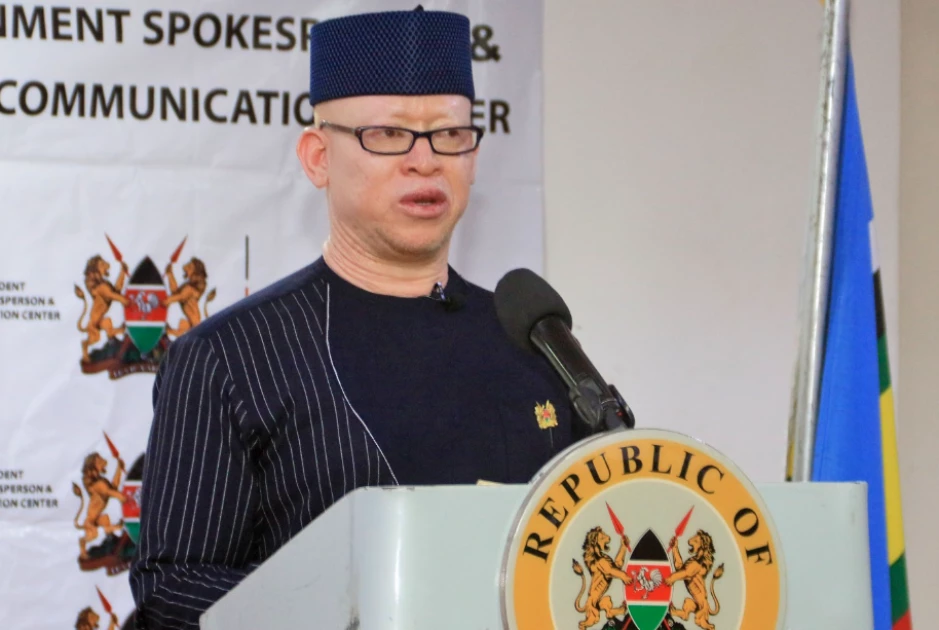Government spokesperson Isaac Mwaura has come to the defense of Agriculture Cabinet Secretary Mithika Linturi amidst the ongoing investigation into counterfeit fertiliser distributed in Kenya under the guise of government-subsidised fertiliser.
Linturi, along with Trade Counterpart Rebecca Miano and officials from the National Cereal and Produce Board (NCPB), Kenya Bureau of Standards (KEBS), National Environment Management Authority (NEMA), and the Directorate of Criminal Investigations (DCI), has been summoned by the Senate to clarify the circumstances surrounding the distribution of fake fertiliser in government depots.
On Thursday, Mwaura asserted that Linturi is not directly implicated in the scandal, dismissing calls for the minister’s resignation as unlikely to succeed.
“That is a far-fetched accusation. There is no evidence linking him to this issue; he is not complicit. The investigations are ongoing, and the agriculture minister is diligently fulfilling his duties,” Mwaura stated.
The government spokesperson highlighted that an investigation is currently underway to ascertain the existence of counterfeit fertiliser in circulation. He suggested the possibility of it being a ploy orchestrated by political rivals to undermine the government’s efforts in providing subsidised fertiliser to farmers.
Mwaura explained that the NCPB was distributing the fertiliser through its depots on an agency basis, likening it to using government agencies like the postal corporation for courier services through contracts. He clarified that Capital Kenya Limited, not NCPB itself, was involved in the distribution process.
Additionally, Mwaura noted that fertiliser under the government-subsidised program is sold in clearly labelled bags. He mentioned that besides the NCPB, fertiliser has been distributed through agro-vets and other outlets, which could potentially serve as conduits for counterfeit products.
The DCI recently seized 700 50-kilogram bags of fake fertiliser in Kakamega and intercepted 560 bags in Nakuru intended for delivery to Molo NCPB stores. Furthermore, over 2,650 bags previously supplied to farmers have been recalled.



